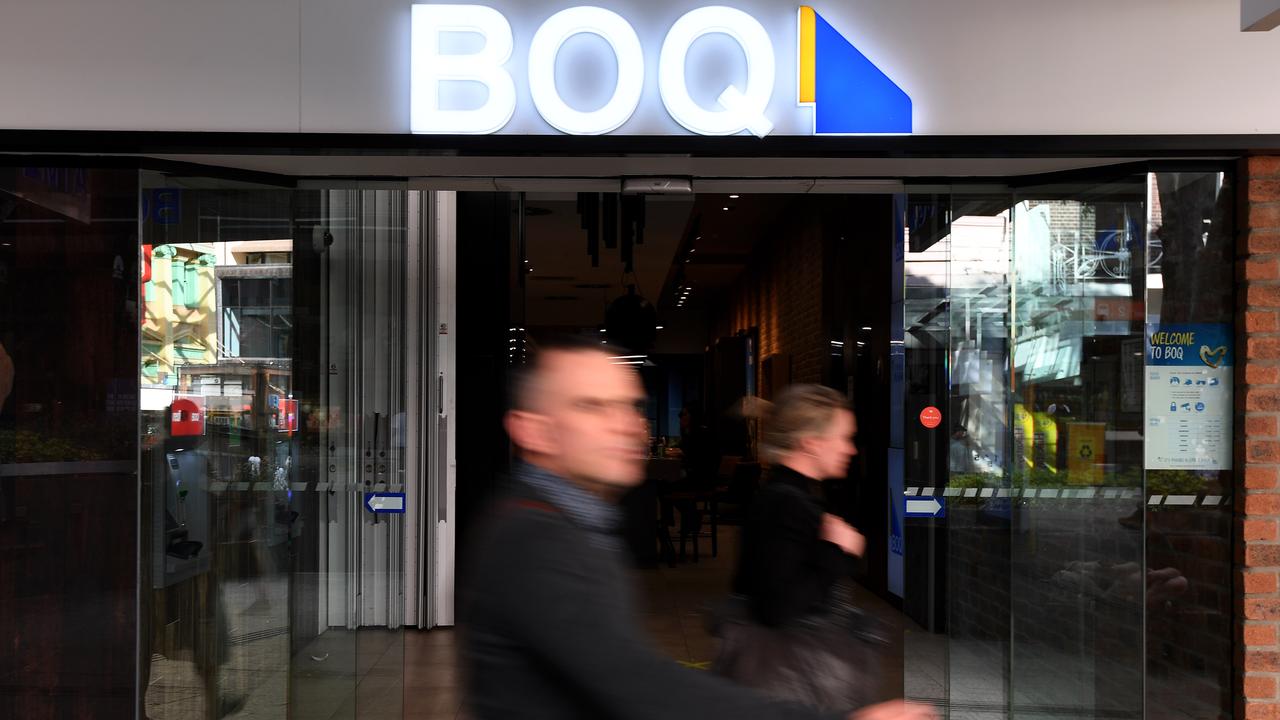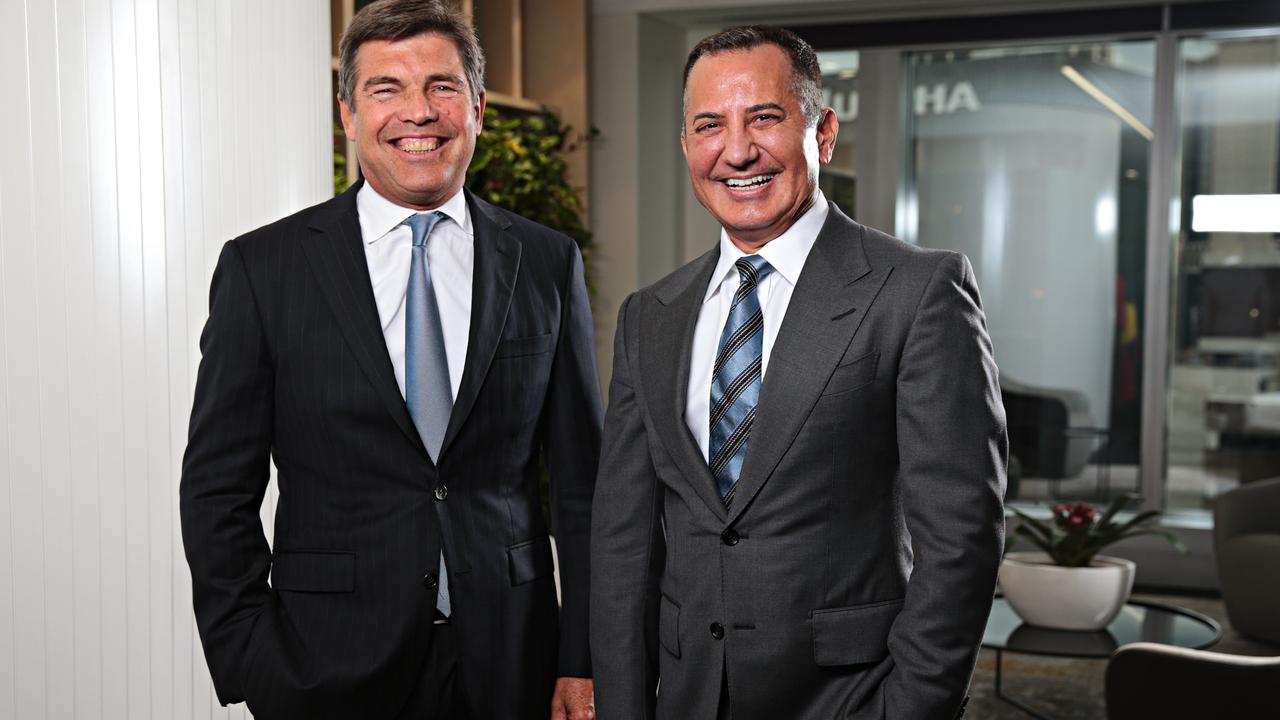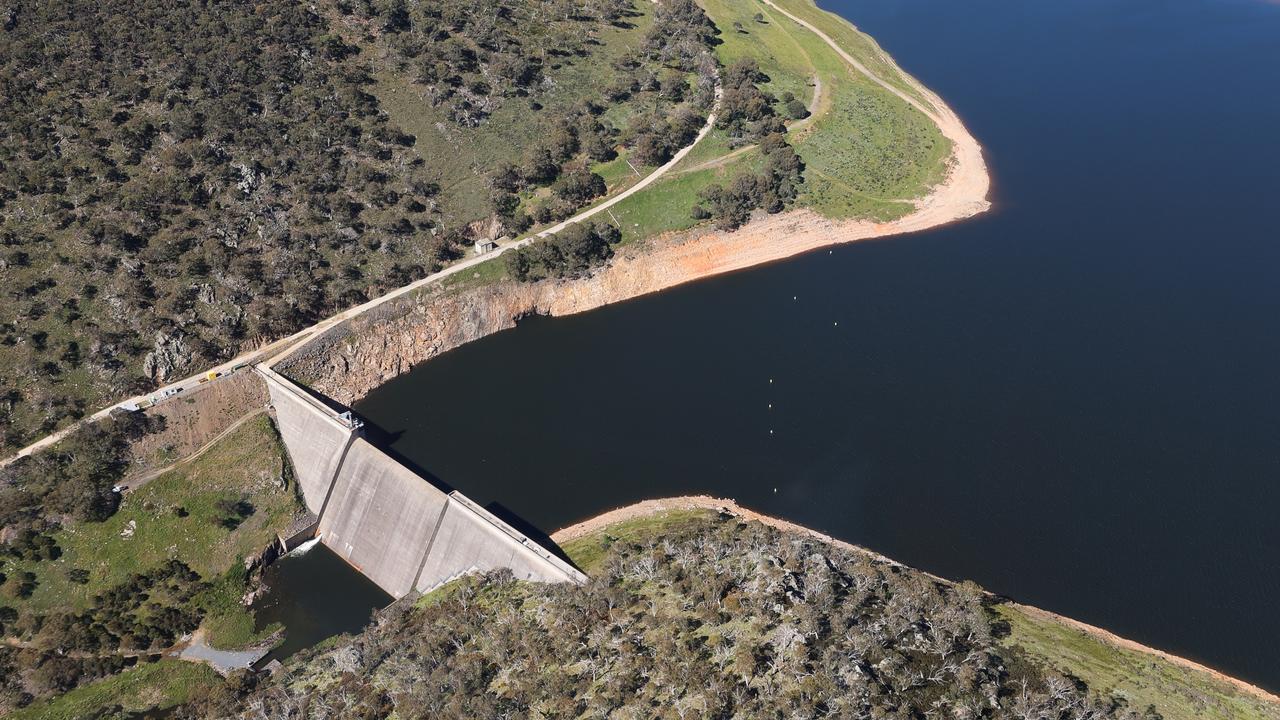More to come: RBA’s tough talk over inflation fight

Indeed the central bank, which was slow in its efforts to start tackling inflation in Australia, fully intends to do everything to get on top of it.
Economists looking for signs of an interest rate pause after a widely expected 25 basis point cash rate hike on Tuesday didn’t find any. Instead there was a strong message that rates would keep moving higher into the new year until inflation is put back in the box.
Lowe warned he is not on a “preset path” in tackling inflation saying he will keep moving again until it hurts. He also knows it’s going to be a narrow path in engineering a soft landing for the economy while bringing inflation to heel.
The one slice of good news is that super-sized hikes appear to be over, but this might be marginal relief for a housing market which is facing double-digit losses by the end of next year.
It is also going to becoming a bigger problem for the Albanese government to manage as it navigates a sharply slowing economy into the next year while inflation is still bubbling away.
Even after early signs last month that inflation may have peaked by coming in a lower-than-expected 6.9 per cent, the RBA says inflation is still too high and is determined to do what it takes to get it back in the target range of 2-3 per cent.
In fact the RBA’s Lowe still expects inflation to hit 8 per cent during the December quarter, which is the top end of economists estimates. The question is how quickly can it fall back to sustainable levels.
The central bank is now in official hiatus until the start of February, so that gives two full months of data and a better read on the global economy before it plots its next move.
Futures markets slightly raised their bets on where the RBA cash rate will peak, but it is pointing to 3.6 per cent by June next year. At the moment there is a 45 per cent chance of another hike coming in the February meeting.
More hawkish economists, including Oxford, are tipping rates could be 3.85 per cent by April. Westpac’s Bill Evans has pencilled in 3.85 per cent by June.
It also called out the lag effect with households yet to feel the full impact of the 300 basis point increases on home loan payments. CBA boss Matt Comyn recently said half of his mortgage customers hadn’t yet felt the full impact of the higher cash rates. Banks more broadly are on high alert for the first signs of stress – particularly as fixed mortgages start rolling over in coming months.
RBA’s Lowe may be coming under intense pressure for promising through the Covid-19 pandemic that cash rates will be rock bottom until 2024. Now he doesn’t want to be seen to be going easy while the inflation fire is burning.
BOQ’s risk focus
The bloody axing of Bank of Queensland’s celebrity chief executive George Frazis nine days ago sent a message the regional lender’s board has zero tolerance for taking the eye off the ball when it comes to risk taking.
More broadly, the move puts executives on notice that no matter the top line growth that’s being delivered, boards are still calling the shots.
BOQ executive chairman Patrick Allaway finally prevailed after repeated warnings to Frazis through this year that his flamboyant style was badly out of sync with the conservative regional lender.

Frazis, who has held top executive roles with Westpac and National Australia Bank, was told he needed to focus on building out the plumbing of risk management and governance, which are key lines of defence in banking. The CEO’s out-of-cycle office hours and small luxuries also sat uncomfortably with the board.
A rapid deterioration in the relationship between Allaway and Frazis from September saw the BOQ board come to a position by the end of November where it lost confidence in its CEO of three years.
Leadership style
It was a show of force by the BoQ’s board on Tuesday as Allaway fronted shareholders to explain to investors the sudden removal of the CEO.
“Unfortunately, irrespective of all the great things that George has done for BOQ, and he has made a major contribution in his last three years, he did not have the leadership style and the skills to take us forward,” Allaway told BoQ’s annual meeting on Tuesday.
“Once the board loses confidence in the CEO, it was actually the right decision to make,” he said. There was a modest protest vote from investors over the handling, but Allaway and his board secured overwhelming support, with more than 91 per cent voting in favour of the remuneration report. However, many votes were likely to have been cast before the CEO axing.

Allaway said Frazis was told about expectations around style of leadership and the priorities of the board over a long period of time.
This culminated in a special board meeting on Sunday more than a week ago which ran into the early evening. Frazis was gone by the end of the meeting.
Frazis was strong on good news and even better at driving headline sales, but the important and less glamorous work which involved building the scaffolding around governance and compliance fell short, according to the BOQ board. This pressure is coming as the economy is moving into a downturn and lending losses are expected to push up.
Over the past year powerful financial crime regulator Austrac launched a review of BoQ’s business, which the lender has cautioned could lead to an enforcement action. Allaway has previously told The Australian the decision to remove Frazis was not linked to Austrac.
Frazis, as this column has reported, was not the standard banking boss. He started late and finished late. Friday meetings were a rarity. Time attending both the Brisbane head office was limited, with the CEO based in Sydney. It is understood that Allaway increased attendance in BoQ’s offices, so the bank’s staff had a sense of leadership coming from the corner office. In recent months, Frazis had started to become more visible given the increased frequency of Allaway attending the office.
Senior staff turnover at the bank was high, and the biggest blow was the exit of chief financial officer Ewen Stafford in July.
The culture of BOQ is fundamentally conservative, reflecting its regional roots and last year Frazis was given nearly $110,000 in non-cash, or fringe, benefits on top of his remuneration package of $2.84m. The non-cash payments were well above the equivalent benefits given to CEOs of the big four banks, and broadly covered accommodation and travel.
In charge
Now Allaway knows he needs to show investors, customers and staff and as well as regulators the bank has stability of leadership, and he is in charge.
A former investment banker, Allaway will become acting CEO while a search is underway and has taken leave from the Dexus and Allianz boards while he remains in the executive role.
On Tuesday, Allaway said the succession planning had been underway and the board had already been monitoring internal and external candidates. The process of getting a new CEO in place will take up to nine months.
The challenges for BOQ are immense. It hasn’t been able to get its technology right for years and needs to increase spending in this area. As well as falling behind others, the tech spend also has serious risk undertones, with the bank still operating off multiple and complex platforms. At the same time, it is halfway through a complex integration of ME Bank, which remains one of the larger banking acquisitions in recent years. Meanwhile, all regional banks are feeling the pressure of higher compliance costs and increasing sophistication of cyber attacks.
Clough collapse
Shockwaves from the collapse of Clough are being felt with companies from EnergyAustralia, Newcrest, Transgrid to Beach Energy now facing cost blowouts on major construction projects they have underway with the 100-year-old engineering and building group.
It was ultimately the $6bn Snowy project that tipped Clough over after the builder signed a fixed price contract in 2018. Cost blowouts, labour shortages, supply delays and red-hot inflation combined to cause a severe cash crunch, as revealed by The Australian’s Nick Evans and Perry Williams in August, leading to its demise.

Taxpayers underwriting the $6bn Snowy Hydro 2.0 project will also need to prepare for more cost hikes and more delays as either a recapitalised Clough under a new owner or a new builder entirely will demand a floating contract to provide insurance against future price rises. With dozens of major infrastructure projects underway across Australia and a shortage of builders, pricing power has materially moved back in favour of construction contractors.
Italy’s Webuild – Clough’s partner on Snowy 2.0 – this week moved from white knight to terminator after it got cold feet over forwarding a $30m much needed loan for Clough. If a buyer can’t be found, Webuild is likely to emerge with a bigger slice of the Snowy workbook in the near term.
The collapse is a timely reminder for other operators of major infrastructure projects which operate under fixed deals to stress test their contractors as ultimately they’ll be on the hook.
Clough’s South African listed parent Murray & Roberts has said without a buyer for Clough, it had no choice but to place the Australian business in voluntary administration given the need for a cash injection.
Clough had an order backlog of around $3.3bn and an additional $4.2bn in contested projects where it was listed as the preferred bidder.
Beyond Snowy, Clough’s contracts include the $1.8bn EnergyConnect NSW interconnector project for Transgrid; the massive Western Australia Waitsia onshore LNG project for Mitsui and Beach; EnergyAustralia’s Tallawarra power station upgrade and work for Newcrest Mining in the shutdown of the Lihir gold mine in PNG.
Clough also has projects for the defence department and projects underway in the UK and United States.
johnstone@theaustralian.com.au



As the Reserve Bank pushes through the first December rate hike in 13 years, central bank boss Philip Lowe has some bad news. There is going to be no New Year’s relief.